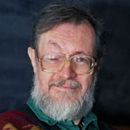Human Services
The Human Services major explores the agencies and community services that impact people's lives as students learn about the relationship between individual behavior, group behavior, and the institutions of human society. The curriculum is anchored in a liberal arts approach to education with the goal of helping students apply critical thinking skills to gain insight into the complex relationships between individual, social and societal questions. Students learn about how small groups operate, the roles of community and family, contemporary social problems, how social policy is formulated, and the impact of economics on social service issues. They are introduced to the research methods important in social service settings. Students learn intervention techniques ranging from counseling skills appropriate for individuals to the implementation of action strategies designed to change social conditions and improve human systems. Equally important, courses in the major emphasize humane and ethical practice through a curriculum designed to increase appreciation of the diversity of human experience and sensitivity to the dynamics of social oppression and the consequences of social change.
Through application of Lasell's Connected Learning philosophy, human services majors have ongoing opportunities to connect theoretical concepts discussed in the classroom with practical application gained by working directly in the field through service learning. In their first year, all students take an introductory course in human service theory and participate in at least one service-learning or social justice project. During their first one-semester internship, students work in a com- munity agency that provides services or a therapeutic environment for its clients. A concurrent seminar provides the academic groundwork for this internship, and a required course in basic counseling skills gives students an introduction to valuable interviewing and intervention techniques. Finally, as the culminating capstone experience in their senior year, students are engaged in a two-semester, intensive internship placement, also accompanied by concurrent seminars each semester. Through their internship experiences and their academic course work, students develop and practice professional skills and master the writing styles for the discipline and the profession.
Skills emphasized in the major are essential to the support of individuals in a wide variety of social service or therapeutic settings in community development, volunteer management, advocacy, fund raising, small group facilitation, child welfare settings, therapeutic environments, and human service agencies in positions such as a counselor, case manager, test administrator, or rehabilitation worker. The under- graduate human services major prepares the capable student for graduate programs in areas such as social work, counseling or human services management.
Academic Standards for Human Services Majors
- Students must earn a grade of C or above in each of the following courses:
PSYC 101 Psychological Perspectives
SOC101 Sociological Immagination
HS101 Human Services: Systems & Skills
HS210 Case Management and Counseling
SOC331 Research methods in the Social Sciences OR
PSYC331 Experimental Design in Psychology - Students must receive a grade of C-minus or above in any required Psychology, Sociology, or Human Services course (course with one of these three prefixes) or any course which serves as a substitute or alternative for such a requirement).
- The foundation seminar and internship courses (HS215 and HS217) are taken as a unit, and failure to receive at least a C in either of these courses will require the student to repeat both.
- The senior level internship courses (HS415 and HS417) and seminar courses (HS425 and 427) form yearlong courses. Failure to receive a minimum grade of C in any one of these courses will result in the student having to repeat the entire sequence, unless there are extenuating circumstances.
The following goals and associated learning outcomes delineate what we strive for students to achieve when they complete the major program of study in Human Services:
Goal 1: Knowledge in the Discipline
Upon completion of the major program of study in Human Services, students will be able to:
- Describe key concepts and theories within the fields of Human Services, Psychology, Sociology, and Economics
- Use social science theories to explain human behavior on individual, small group, and societal levels
- Demonstrate knowledge of professional codes of ethics
Goal 2: Professional social service experience
Upon completion of the major program of study in Human Services, students will be able to:
- Demonstrate effective skills for interacting with clients
- Reflect on the development and practice of their professional roles
Upon completion of the major program of study in Human Services, students will be able to:
- Engage in action to address the issues of justice by raising awareness or advocating for change
- Reflect on the results of service3. Recognize and describe social injustice
- Analyze issues that cause social and economic disparities
Goal 4: Scientific reasoning
Upon completion of the major program of study in Human Services, students will be able to:
- Demonstrate facility with research methodology
- Demonstrate ability to apply statistics
- Develop a substantiated argument
Goal 5: Communication within the discipline
Upon completion of the major program of study in Human Services, students will be able to:
- Demonstrate proficiency in professional writing
- Write a preliminary grant
- Deliver a professional presentation
Additional Requirements: 7-19 credits
Math 208: Introduction to Statistics: 3 credits
Choose one of the following three: 4 credits
BIO 101 & BIO 101L: Principles of Biology
BIO 112 & BIO 112L: Human Biology
BIO 205 & BIO 205L: Anatomy & Physiology I
Foreign Language: 0-12 credits*
* The Foreign Language Proficiency requirement is detailed in the Academic Information section.
Additional Requirements: 12-27 credits
Social Science Electives AI (PS): 6-7 credits
Science Electives AI (S): 6-8 credits
Foreign Language**: 0-12 credits
** The Foreign Language Proficiency requirement is detailed in the Academic Information section.
General Education Core Requirements and remaining Unrestricted Electives***: 40-52 credits
Minimum credits required for graduation: 120
Courses listed below fulfill Area of Inquiry requirements:Moral and Ethical
HS 217: Foundations of Ethical Fieldwork
Multicultural
PSYC 316: Psychology of Diversity
SOC 301: Race & Ethnic Relations
CJ 323: Justice, Class, Race & Gender
Psychological and Societal
PSYC 101: Psychological Perspectives
Quantitative
Math 208: Introduction to Statistics
Science
BIO 101 & BIO 101L: Principles of Biology
BIO 112 & BIO 112L: Human Biology
BIO 205 & BIO 205L: Anatomy & Physiology I
| Course Code | Course Title | Credits |
|---|---|---|
| Core Courses | ||
| HS101 | Human Services: Systems & Skills | 3 |
| HS210 | Case Management & Counseling | 3 |
| HS215 | Foundation Internship | 3 |
| HS217 | Foundations of Ethical Fieldwork | 3 |
| HS415 | Advanced Internship I | 3 |
| HS417 | Field Intervention Strategies | 3 |
| HS425 | Advanced Internship II | 3 |
| HS427 | Systems & Organizational Change | 3 |
| MATH208 | Statistics | 3 |
| PSYC101 | Psychological Perspectives | 3 |
| PSYC218 | Dynamics of Small Groups | 3 |
| PSYC318 | Abnormal Psychology | 3 |
| SOC101 | Sociological Imagination | 3 |
| SOC214 | Family Diversity | 3 |
| SOC221 | Contemporary Social Problems | 3 |
| Choose 1 from the following: | ||
| ECON101 | Principles of Econ-Micro | 3 |
| ECON103 | Economics of Social Issues | 3 |
| POLS320 | Policy Making & the Political Process | 3 |
| SOC335 | Social Policy | 3 |
| Choose 1 from the following: | ||
| BIO101 | Principles of Biology | 4 |
| BIO112 | Human Biology | 4 |
| BIO205 | Anatomy & Physiology I | 4 |
| PSYC111 | Aging in America | 3 |
| PSYC221 | Child Development | 3 |
| PSYC223 | Adolescent Psychology | 3 |
| PSYC331 | Experimental Design in Psychology | 4 |
| SOC331 | Research Methods in the Social Sciences | 4 |
| Choose 1 from the following: | ||
| CJ323 | Justice, Class, Race & Gender | 3 |
| POLS320 | Policy Making & the Political Process | 3 |
| PSYC316 | Psychology of Diversity | 3 |
| PSYC331 | Experimental Design in Psychology | 4 |
| SOC301 | Race & Ethnic Relations | 3 |
| SOC331 | Research Methods in the Social Sciences | 4 |
| SOC335 | Social Policy | 3 |
| Choose 1 from the following: | ||
| POLS320 | Policy Making & the Political Process | 3 |
| PSYC202 | Psychology of Personality | 3 |
| PSYC220 | Social Psychology | 3 |
| SOC335 | Social Policy | 3 |
| Choose 1 from the following: | ||
| BIO101 | Principles of Biology | 4 |
| BIO112 | Human Biology | 4 |
| BIO205 | Anatomy & Physiology I | 4 |
| PSYC111 | Aging in America | 3 |
| PSYC221 | Child Development | 3 |
| PSYC223 | Adolescent Psychology | 3 |
| Choose 1 from the following: | ||
| CJ323 | Justice, Class, Race & Gender | 3 |
| PSYC316 | Psychology of Diversity | 3 |
| PSYC331 | Experimental Design in Psychology | 4 |
| SOC301 | Race & Ethnic Relations | 3 |
| SOC331 | Research Methods in the Social Sciences | 4 |
| Choose 1 from the following: | ||
| BIO101 | Principles of Biology | 4 |
| BIO112 | Human Biology | 4 |
| BIO205 | Anatomy & Physiology I | 4 |
| ECON101 | Principles of Econ-Micro | 3 |
| ECON103 | Economics of Social Issues | 3 |
| PSYC202 | Psychology of Personality | 3 |
| PSYC220 | Social Psychology | 3 |
Additional Requirements: 7-19 credits
Math 208: Introduction to Statistics: 3 credits
Choose one of the following three: 4 credits
BIO 101 & BIO 101L: Principles of Biology
BIO 112 & BIO 112L: Human Biology
BIO 205 & BIO 205L: Anatomy & Physiology I
Foreign Language: 0-12 credits*
* The Foreign Language Proficiency requirement is detailed in the Academic Information section.
Additional Requirements: 12-27 credits
Social Science Electives AI (PS): 6-7 credits
Science Electives AI (S): 6-8 credits
Foreign Language**: 0-12 credits
** The Foreign Language Proficiency requirement is detailed in the Academic Information section.
General Education Core Requirements and remaining Unrestricted Electives***: 40-52 credits
Minimum credits required for graduation: 120
Courses listed below fulfill Area of Inquiry requirements:
Moral and Ethical
HS 217: Foundations of Ethical Fieldwork
Multicultural
PSYC 316: Psychology of Diversity
SOC 301: Race & Ethnic Relations
CJ 323: Justice, Class, Race & Gender
Psychological and Societal
PSYC 101: Psychological Perspectives
Quantitative
Math 208: Introduction to Statistics
Science
BIO 101 & BIO 101L: Principles of Biology
BIO 112 & BIO 112L: Human Biology
BIO 205 & BIO 205L: Anatomy & Physiology I
ANTH103 - Human Origins
This course considers the morphological, behavioral and life history features that distinguish the primates from other mammals, and the hominoids from other primates. We begin with an overview of the primates and their behavioral ecology, and then explore in detail the adaptations of each of the major groups of extant primates. Finally, we apply our knowledge of morphology and behavioral patterns in living primates to the fossil record.
BIO101 - Principles of Biology
This is an introductory lecture and laboratory course in biology to develop an appreciation for the patterns and functions that characterize living organisms. Emphasis is placed on cellular biology. Topics include: the chemistry of life, cell structure, and cell metabolism (respiration, photosynthesis, protein synthesis.) Corequisite: BIO 101L.
BIO102 - Diversity of Living Organisms
This course emphasizes the evolutionary history of life on earth. Topics include: Darwinian evolution, genetics, a survey of the five kingdoms of life, principles of ecology, and human ecology. The laboratory introduces the student to the diversity of living organisms. Corequisite: BIO 102L.
BIO110 - Nutrition
This course focuses on the function of nutrients and their requirements throughout the life cycle. The course reviews current nutrition issues as they relate to personal health. Topics include disease prevention, weight and fitness management, fad diets and nutritional trends.
BIO112 - Human Biology
This is a one semester lab course focusing on the functions of the human body in health and disease. The structure and function of the major body systems are emphasized. Systems discussed include: skeletal, muscular, digestive, circulatory, excretory, reproductive, nervous and endocrine. Corequisite: BIO 112L.
BIO205 - Anatomy & Physiology I
This is a comprehensive course focusing on the structure and function of the human body. The course introduces students to aspects of human biology ranging from the chemical basis of life and cell biology to the anatomy and physiology of the major organ systems. Topics covered include: cell biology, major body tissues, and the structure and function of the following systems: skin, skeletal, muscular, and nervous. The laboratory component includes dissection. Students should have successfully completed one year of at least secondary (high school) level Biology before electing this course. Corequisite: BIO 205L.
CHEM203 - General Chemistry I
The course begins with a study of measurement and matter. An introduction to atomic theory follows. Mass relationships in chemical reactions are introduced, followed by the study of chemical reactions in aqueous solutions. The gas laws are then covered, followed by an introduction to thermodynamics. Concepts of chemical bonding are studied along with periodic relationships among the elements. Quantum theory is used to explain the electronic structure of atoms. Laboratory experiments complement the material covered in lecture. The laboratory experiments are designed to introduce methods, materials, and equipment of chemistry as well as to illustrate important chemical principles. Prerequisite: MATH 104. Corequisite: CHEM 203L.
CJ205 - Forensics
This course provides an introduction to the modern methods used in the detection, investigation, and solution of crimes. Practical analysis of evidence such as: fingerprints and other impressions, ballistics, glass, hair, handwriting and document examination, and drug analysis are studied. Prerequisite: CJ 101 or LS 101.
HIST208 - Sub-Saharan Africa after 1800
This survey of sub-Saharan African history explores the ongoing story of African political, social, and economic developments from the post trans-Atlantic slave trade period to the present. The course includes treatment of the impact of European merchants, missionaries, and adventurers on Africa from the time immediately preceding imperialism and colonialism up through the emergence of nationalism and decolonization and liberation movements. The new nation-states, their post-colonial economies, and their developing systems of justice, education, and rule are investigated. Finally, topics such as soil erosion, disease, conservation, famine, and Africa’s relationships with the wider world are discussed. Prerequisite: a 100 level history course or ENG 102.
HIST209 - China from 1600 to Present
This course is a survey of modern Chinese history from the founding of the Qing Dynasty in the seventeenth century to Deng Xiaoping's economic reforms of the 1990s. Special attention will be paid to modernization, Western and Japanese imperialism in China, and the rise of Communism under Mao Zedong. In addition to learning about important milestones in Chinese history, students will also be introduced to aspects of Chinese art, culture, and women's issues through primary sources translated into English. This is a writing-intensive course. Prerequisite: a 100 level history course or ENG 102.
HIST210 - Latin Amer Colonial Period to Present
This survey looks at Latin American history from pre-Columbian to contemporary times. Emphasis is on native cultures, the “discovery” of the New World, European presence, colonialism, imperialism, the creation of the peasantry, wars of independence, the formation of nation-states, the role of the military, slavery and racism, development and underdevelopment, the Catholic Church, liberation theology, poverty, and revolution. Major emphasis in South America is on Argentina, Columbia, Peru, Chile, Venezuela, and the Portuguese speaking nation of Brazil. The course also includes examination of foreign intervention and inner instability in Mexico, including struggles for democracy, economic rights, and social justice. In the Hispanic Caribbean and Central America, especially, Cuba, Puerto Rico, Dominican Republic, Guatemala, Belize, Costa Rica, Nicaragua, and Panama, land and labor systems, gender relations, race and ethnicity, and varied forms of rule are discussed. This is a writing intensive course. Prerequisite: a 100 level history course or ENG 102.
HIST211 - Middle East & Islamic World Since 1800
This course looks at the Middle East and its relations with the wider world, from the appearance of Napoleon to the present. Topics include attempts at reform and modernization in the Ottoman Empire; the impact of Western imperialism on the region as a whole; and twentieth-century developments in the area, including nationalism, pan-Arabism, pan-Islamism, the cult of the personality, coup, revolution, Zionism, and the Palestinian-Israeli confrontation. The economic and social impact of oil, the influence of fundamentalism, and the Great Power rivalry down through the position of the United States toward the area are investigated. The efforts of Iran to gain acceptance in/by the contemporary world is examined, as is the shifting attitude of Egypt toward modernity. Finally, connections between the region and the rest of the Islamic world are explored. This is a writing-intensive course. Prerequisite: a 100 level history course or ENG 102.
HIST212 - Mod Japan: Culture & History
This course is a survey of Japan's modernization from the fall of the "warring states" period to the economic bubble of the 1980s. Special attention will be paid to the contributions of the "early modern" Tokugawa Shogunate, the Meiji period of cultural borrowing from the West, and the cultural nationalism of the Japanese empire until 1945. In addition to learning about important milestones in Japanese history, students will be introduced to aspects of Japanese art and culture through a variety of primary and secondary sources and film clips. This is a presentation-intensive course. Prerequisite: a 100 level history course or ENG 102.
HIST325 - The Intellectual Origins of Western Civ
This seminar traces the roots of modern western thought from ancient Greece through the Enlightenment by discussing and analyzing selections from the writings of major European thinkers. The seminar focuses on dominant figures representative of an historical epoch and examines their ideas in light of existing and future political, social, economic, and intellectual developments. Prerequisite: a 200 level history course or permission of instructor.
HIST330 - Europe & The World/ Age of Expansion
This course examines political, economic, social, scientific, and religious developments that contributed to European desire for land and power, and also to fantasies and phobias directed by European conquerors toward those whom they subdued and subjected to Western rule. The reaction toward the white Westerners on the part of those exploited is also explored. The period covered is from the mid-fifteenth century through the eighteenth century. Prerequisite: a 200 level history course or permission of instructor.
HUM103 - Invitation to the Humanities
This course invites students to consider what it means to be human from manifold scholarly perspectives. As such, students are introduced to the many disciplines included in the Humanities. Arguably, there are eight: art, communication, history, language, literature, music, philosophy, and religion. Taking a thoroughly interdisciplinary approach, this course investigates how humanists employ these varied disciplines in studying and expressing humanness.
HUM399 - Humanities Internship Seminar
This seminar helps students to develop objectives and identify potential sites for the senior internship. Topics include the application of humanities course work to a professional career and the development of skills necessary to locate an internship. The final goal of this course is to locate an appropriate internship. Prerequisites: Junior or Senior standing, Humanities Department majors only.
HUM400 - Humanities Field Experience
This course provides individually arranged participation in a work setting related to students' majors. Students spend 150 hours at the internship site over the course of the semester. Primary area of responsibility rests with students in identifying and pursuing an area of interest in consultation with the instructor. Students participate in a one-hour seminar each week that focuses on reflective activities that enhance the internship experience. Students complete written exercises about and evaluations of the experience. Evaluation of the field experience is based on student performance as reviewed by the employer and instructor at the internship site as well as participation in the seminar and written assignments. Prerequisites: Junior or Senior standing, approval of instructor, HUM 399. Humanities Department majors only.
HUM419 - Seminar in Hum: Readings & Research
This capstone course serves as the direct complement to HUM420. Whereas HUM420 is a writing-intensive course, this course is a research-and-reading-intensive; students work in a tutorial-fashion (i.e., one-on-one) with the instructor to choose a research topic, read closely in pertinent sources, and report back through informative and exploratory writing assignments and conversations. Like HUM420, this course focuses on the acquisition of knowledge and the solution of problems, and when taken together these courses serve as a capstone experience. Prerequisites: Senior standing. Humanities Department and IDS majors only.
HUM420 - Seminar in Humanities
This capstone course focuses on the acquisition of knowledge and problem-solving. The topic will change; however, the course emphasizes extensive research projects related to students' fields of interest. This is a writing intensive course. Prerequisites: HUM419 and Senior standing. Humanities Department and IDS majors only.
PHIL101 - Introduction to Philosophy
This course is an introduction to the basic problems of philosophy, such as the sources of knowledge, the relationship between mind and body, freedom as opposed to determinism, and the nature of values.
PHYS111 - General Physics I
This is the first semester of a one-year course that surveys the field of physics at a non-calculus level. Topics include motion in one and two dimensions, force, uniform circular motion, work and energy, and statics of rigid bodies. The laws of thermodynamics are introduced. Laboratory experiments are conducted to complement the material covered in lecture. Prerequisite: MATH 203 or equivalent with a grade of C or better. Corequisite: PHYS 111L.
SCI103 - Science for Educators I
This course provides education students with an introduction to the scientific principles governing the contemporary technological world. Topics include scientific methodologies, gravity, energy, electricity, magnetism, light, and introductory chemistry. Laboratory experiments are conducted to complement the material covered in lecture.
SCI104 - Science for Educators II
This course provides education students with an introduction to earth science, astronomy, and environmental science. Topics include the weather, solar system, stars, the universe, and global pollution. Laboratory experiments are conducted to complement the material covered in lectures.
SCI105 - Principles of Astronomy
This course is an introduction to descriptive astronomy. The course covers general physical principles that lead to an understanding of how the universe was formed, the laws of planetary motion, how stars shine, and the creation of black holes. Other special topics in astronomy are covered. Special evening sessions for observing the stars and planets may be offered.

Stephanie Athey
Professor of Cultural Studies, Director of the Honors Program
Office: Winslow
Email: sathey@lasell.edu

Dennis Frey Jr
Dean of Curricular Integration, Director of Rosemary B Fuss Teaching and Learning Center, Professor of History
Office: Winslow
Email: dfrey@lasell.edu

Jose Guzman
Professor of Humanities, Coordinator of World Language Program
Office: Winslow
Email: JoGuzman@lasell.edu

Lizbeth Piel
Chair of Humanities; Associate Professor of Humanities
Office: Winslow
Email: lpiel@lasell.edu



